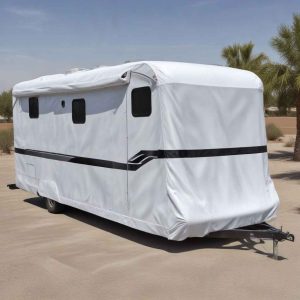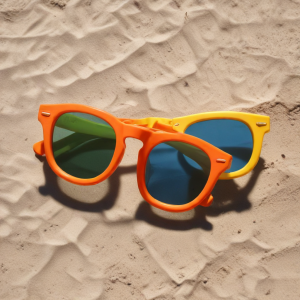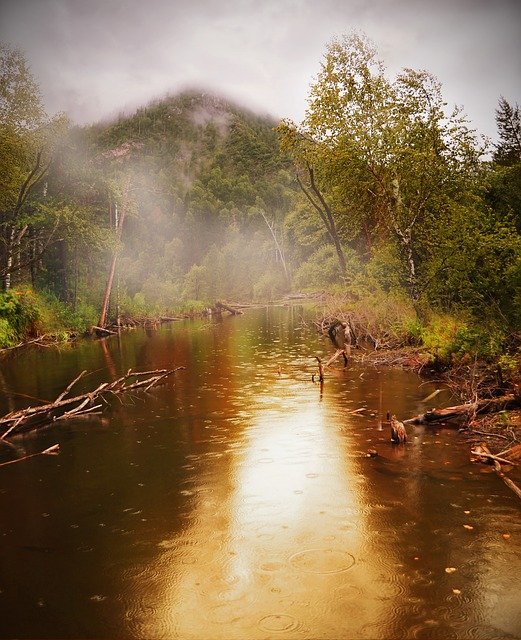Comprehending the Type of Fabric that Offers the Best Protection for Recreational Vehicles
 Durable RV covers for all-weather protection are usually made of synthetic fabrics like polyester, polypropylene and vinyl, which are actually kinds of plastic materials. Yet they have varying levels of capabilities when used as outdoor protection against environmental elements such as water, snow and UV radiation. This article focuses on the salient properties of materials that recreational vehicle owners must consider when choosing a protective RV cover for their rig.
Durable RV covers for all-weather protection are usually made of synthetic fabrics like polyester, polypropylene and vinyl, which are actually kinds of plastic materials. Yet they have varying levels of capabilities when used as outdoor protection against environmental elements such as water, snow and UV radiation. This article focuses on the salient properties of materials that recreational vehicle owners must consider when choosing a protective RV cover for their rig.
Basically derived from petroleum products, polyester and polypropylene are deemed as the best artificial materials for making strong and excellent outdoor vehicle covers in light of their excellent physical properties. RV covers made from polyester and polypropylene are highly recommended over vinyl tarps because they are breathable materials. However, these two types of plastics have different capabilities in terms of exposure protection against harmful ultraviolet (UV) rays.
What Exactly Does Breathable Mean in an RV Cover
Being breathable means not allowing moisture vapor to get trapped under the cover and inside an RV to prevent mold and mildew formations. Moreover, the exceptional breathability of RV covers made from polyester and polypropylene fabrics helps in regulating the temperature inside the rig while stored in a car port or outdoors.
Polyester vs. Polypropylene as Protective Material Against UV Harms
 While both polyester and polypropylene materials are commonly used as RV covers, they have different levels of susceptibility and resistance against the harms of UV rays. Unlike RV covers made of polyester fabrics RV covers made of polypropylene fabrics have a high rate of degradation.
While both polyester and polypropylene materials are commonly used as RV covers, they have different levels of susceptibility and resistance against the harms of UV rays. Unlike RV covers made of polyester fabrics RV covers made of polypropylene fabrics have a high rate of degradation.
Polypropylene fabrics consist of a simple chain of polymers, a chemical structure that can easily weaken when exposed to intense UV light. UV rays can easily break the bonds holding the polymers together, which makes polypropylene RV covers not suitable for long term outdoor use.
In contrast polyester fabrics have innate resistance against degradation caused by UV light. The structure of polymer fabrics consists of a chain of polymer units held together by ester linkages. The latter refers to chemicals and acids capable of developing heat absorption properties.
Polyethylene Polyesters vs. Polypropylene – Water Resistant RV Covers
The most common and immediate question asked by buyers when shopping for RV covers is the ability of the fabric not only to protect the surfaces of vehicles against unwanted rain water, ice or snow. Waterproof RV covers must also have the ability to keep water away from seals and keep them dry.
Aside from being highly resistant to UV degradation, the structure of polyester materials also makes the fabric also highly water resistant.
However, the question of ensuring that water will not seep into the seals of the vehicle, it’s important to make certain that the RV cover being purchased is the proper fit for the vehicle. Take note that the CarCover.com website has pages that provide details of RV covers in accordance with the make, size and specifications of the Class (A, B, C) RV related to the purchase.

